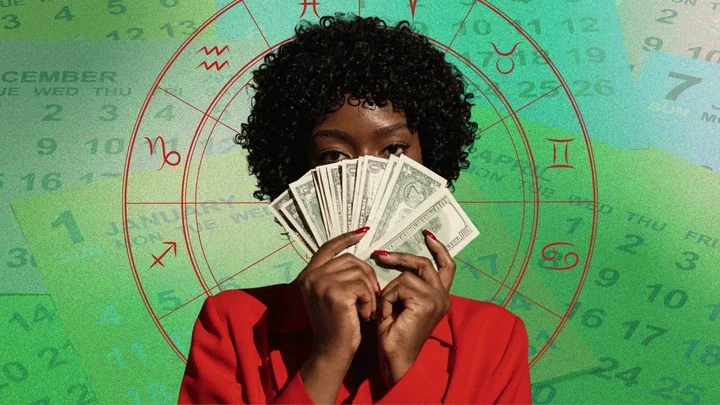
No one sets out to be broke. Bad investment, poor money-making skill, poor saving habits; these are some reasons you'll often revert to broke status. Also, being broke is not having a reliable source of income. Being broke is living paycheck to paycheck with no savings intact. Being broke is being in debt up to your eyeballs.
If you're sick and tired of being broke, it's time to take control of your finances! Whether you need to work on your spending habits, learn how to save, or find ways to earn more money, you can find a way to stop being broke.
So today, we'll share with you 10 things you should do to stop being broke.
1. Learn to live below your means
Spending above what you earn will only leave a trail of debt behind you. If you're spending beyond your means because you need to keep up with your friends or show others that you can afford a certain lifestyle, you're not doing yourself any good. Stop worrying about what others can afford and think about how you can live within your means. Put your credit or debit card away. They make it easy to spend money you don't need to spend.
Change your attitude on consumer goods. Stop reading fashion, home style, and consumer technology magazines and watching flashy TV shows. They only feed your vain desires. Learn to live below your means. That way you'll have something left at the end of each month.
2. Develop a skill
You are often broke either because you don't earn enough or because you spend more than you earn. There are three money skills you need to develop; money making, money keeping and money growing skills. You can't keep or grow money you don't have. So the most important thing to do to stop being broke is to develop your money making skills. And what other way than to have skills people are willing to pay for.
People don't usually have money problem. What they often have is skill problem. If you have skills people are looking for, they will pay money to get it. So if you want to stop being broke, start developing a new skill. For instance, if you love to write, develop your writing skill. If you love logical reasoning, you can try your hand in coding. If you love art, learn design, video production, graphic, photography. There are many skills you can develop. Just go and get more self-education.
3. If you already have a skill, get better at it
If you already have a marketable skill and are still broke, it's either your skill is not good enough for people to pay for it or that your marketing skill needs some work. Take advantage of digital media to reach more prospects. If you are selling a product or service, try online advertising. Learn social media and content marketing. If you're a writer, start a blog or utilise platforms like Medium, Dev.to. Don't be skilful alone, adopt the skill of promoting what you do.
4. Only lend money you can afford to lose
Leave a comment below if you have had a bad experience lending money to someone close to you. You end up losing your money or even hurting a friendship. I'm sure a lot of you can relate to this.
It's okay to lend a helping hand to someone in need. But that should be when you can afford to. If you are still struggling to find your feet financially, lending money you cannot afford to lose leaves you at the mercy of the borrower. To be on safer side, only lend money you can afford to let go of in the worst case.
5. Use the 50/30/20 rule
Former American presidential candidate, Elizabeth Warren popularized the so-called '50/20/30 budget rule' in her book, All Your Worth: The Ultimate Lifetime Money Plan. The idea behind this rule for budgeting is that 50% of your net income should go toward "needs", 30% should go toward "wants", and the remaining 20% should go into savings. "Needs" would include things like groceries, prescription medications, rent, and insurance. Some examples of "wants" are Netflix, cable, and manicures. You may not necessarily hit the exact numbers but work towards splitting your earnings around that percentage. To make this more effective, see dividing up your income as paying yourself first. Set aside at least 20 percent before any other spending. Once you've exhausted the rest of your liquid income for the month, let every unimportant thing go or wait till next month.
6. Stop buying on impulse
Instant gratification is getting you into trouble time and time again. There are many ways to spend money but fewer ways to make them. An important step to getting your finances in order is to tell your money where to go instead of wondering where it went.
A budget puts you back in the driver's seat so you're no longer at the mercy of impulse spending. If your potential purchase isn't in the budget, slow down and back away. Remember that making minor sacrifices now will pay off in the long run. Know what your end goal is, and then go after it!
If you always have a plan for what you will buy, you will have a much easier time managing your finances. If you have a hard time controlling your purchases when you go to the mall, try to avoid going to the mall at all. Your urge to buy unnecessary items will likely wear off after several days or sometime a few hours. Instead plan for every big spending. Save towards it. And make the decision thoughtfully.
7. Avoid debts as much as possible
It's easy to buy things on credit or ask for a loan but they always come back to haunt you when your earnings arrive. Sometimes accumulated debts could halve your income even before you take a dime out. So avoid debts as much as possible and only take loans when there is no other way around a financial situation.
8. Stay Away from Get-Rich-Quick Schemes
Many people have lost a lot of money in get-rich-quick schemes that come as high yield investment programs. They make you believe you have to take risk to put your money to work for you. But in the end, it ends up making a few people rich and the rest broke.
Investing is a great way to grow your money. But, we aren't all experts in investing. In fact it's easier for most people to make money than to invest it profitably. But if done right, investing can lead to unexpected wealth.
There is calculated risk and there is dumb risk. The best investors only invest in what they know and understand. Take for example life insurance and questions like "Can IUL be used for retirement?", "What is a No-lapse Guarantee?" and numerous others. The best investors will know the answers to these or they will consult with professionals who do. That is taking a calculated risk. They don't invest with emotions. They rely on market analysis and projections among other information. You too can start grooming your investing skill in a field of interest. Remember, this rule always apply; if it is too good to be true, then it's most likely too good to be true. You are better off saving money than losing it in a get-rich-quick scheme.
9. Let go off friends that encourage negative habits
It's been said that "you are the product of the five people you spend most of your time with". Make a list of your friends and put them into two categories: toxic and non-toxic. You'll learn that some of the people you hang out with are not worth spending your time with anymore. Maybe every time you hang out with them, you come home feeling emotionally drained or you're forced to drink against your wish. Perhaps all your friends do is spend money on frivolous things, and now you find yourself doing the same things. Free yourself from those friends. If you are always around people who spend money carelessly, their habits are likely to rub off on you. Try spending time with more frugal people.
Conclusion
In conclusion, the habit you develop with money when you earn a little will translate into when you start earning more. If you spend on impulse with a little, you will not change automatically when you start earning more. If you don't plan your spending with a little, the same habit will accompany you with earning more. Start now to develop your financial intelligence. Develop and brush up your skills to increase your ability to earn. Your future self will be proud of you. What money habits will you be developing in the new year? Tell us about it in the comment's section.












![Ranked! Top 10 goalkeepers in the world [2025] Ranked! Top 10 goalkeepers in the world [2025]](https://static.netnaija.com/i/vWaq3ZoWKrk.webp)




Comments